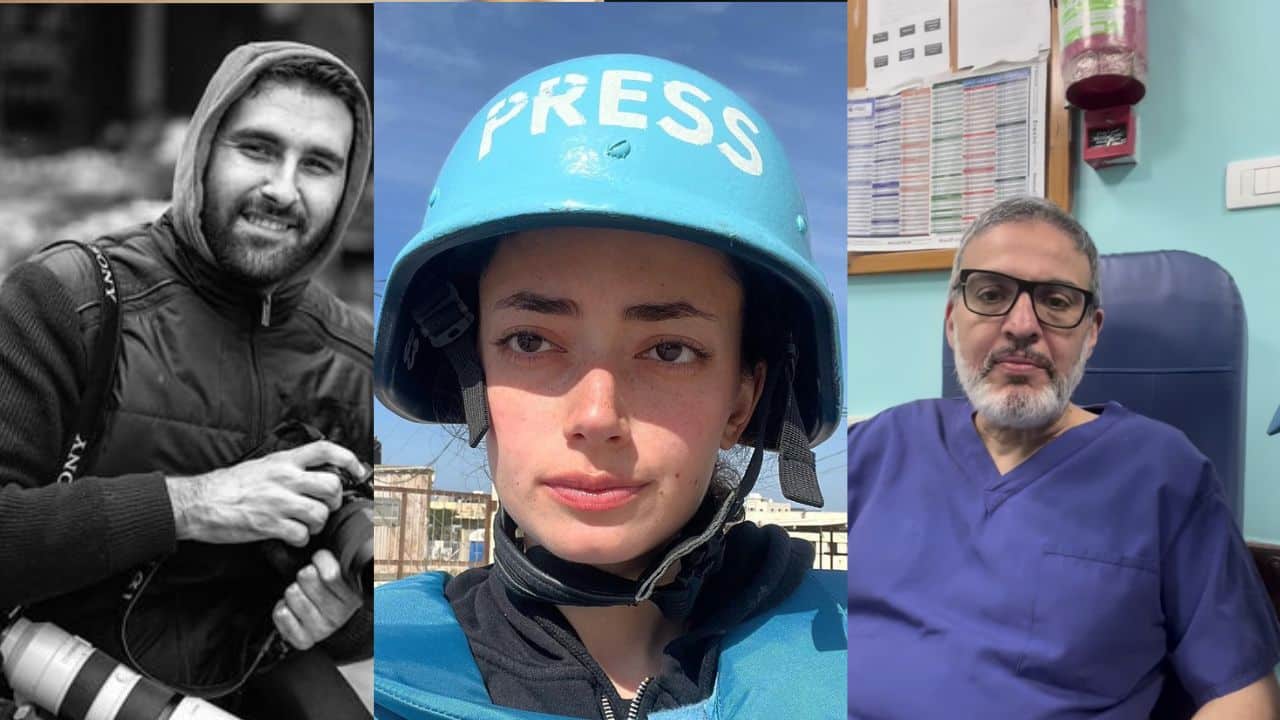For its November issue, Vogue Arabia paid tribute to the journalists and doctors of Gaza who are fighting to save countless lives during Israeli air strikes. Since the war began on October 7, close to 9000 Palestinians have been killed by Israel, including 3000 children.
“Dedicated to the brave doctors, nurses, and reporters in Gaza,” the statement read. “The issue pays homage to their heroic commitment as they implement vital work amid inhuman conditions. The cover also features traditional hand-embroidery from different regions of Palestine, in an ode to its culture and a further appeal for humanity.”
The statement further said the current crisis in Gaza can be called one of the biggest disasters in history “and a failure shared by all.” It urged audiences to raise their voices “putting pressure on governments and international organizations to find a peaceful solution to stop the violence. This should be a global effort, regardless of our ethnicity or religion.”
The people honoured in the cover are photographer Motaz Azaiza, journalist Plestia Alaqad, Youmna El-Qunsol, Doctors Ghassan Abu-Sittah and Mohammed Al Ghoula.
For the cover of the issue, Vogue Arabia used a cloth featuring traditional Palestinian embroidery called tatreez.
Explaining the significance of the fabric, the publication elaborated on how this design emerged in Palestine as well as the significance it holds within the culture.
“The fabric seen on the issue is covered in an embroidery also known as tatreez, which originated in Palestine 3,000 years ago, and has since carried a deep meaning in the region,” the article explained. “It is also popular in other Levantine countries like Jordan, with each nation presenting some changes in the embroidery pattern. Over centuries, the skill has been passed on by women as an inter-generational practice and used as a means to tell the story of Palestine and its people. Each nuance in color and pattern denotes everything, from the region the wearer is from, to personal milestones including social and marital status. In 2021, the United Nations cultural agency (Unesco) also added tatreez to its Intangible Cultural Heritage List.”
Palestinian designer Zaid Farouki was consulted for Vogue Arabia’s cover. He acted as a cultural advisor and used different motifs from cities across Palestine to be represented on the cover.
The tatreez was popularised when public figures like Queen Rania of Jordan wore the fabric on several occasions. In 2018, Michigan Democrat Rashida Tlaib, the first American legislator of Palestinian origin, made history as the first Palestinian and one of the two Muslim women elected to the Congress. She was seen wearing the traditional tatreez which was embroided by her mother.









